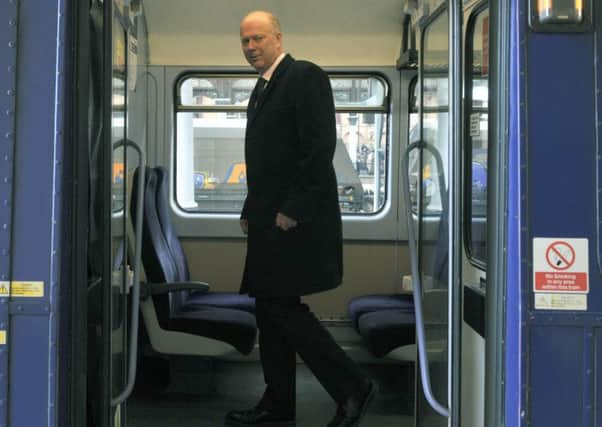Transport Secretary accused of lying over scrapping of rail electrification schemes


The National Audit Office (NAO) said Chris Grayling had explained that the projects in England and Wales would not go ahead because it was no longer necessary to electrify every line to deliver passenger benefits.
He said passenger journeys on the Great Western Main Line in South Wales, the Midland Main Line and on the Lakes Line between Windermere and Oxenholme could be improved sooner than expected by using “state of the art trains”, including bi-mode trains which can transfer from diesel to electric power without passengers being aware of the switch.
Advertisement
Hide AdAdvertisement
Hide AdBut the NAO said the main reason for the cancellation was financial. Its report said: “While the availability of alternative means of delivering passenger benefits was important, the major reason for cancellation was affordability.
“The Department decided to cancel projects because Network Rail could no longer deliver its 2014-19 investment programme within the available funding. Network Rail found that the cost to complete planned works exceeded the available funding by £2.5 billion.
“In late 2016, the Department and Network Rail found that plans to raise and retain £1.8 billion to reduce the funding shortfall, through asset sales, were unachievable. They decided to cancel projects to help address the shortfall.”
Advertisement
Hide AdAdvertisement
Hide AdThe NAO said it was too early to determine whether the Transport Department will still be able to deliver the benefits of electrification without these electrification projects in place.
It also revealed that the Prime Minister agreed to cancel the Cardiff to Swansea project last July shortly before Mr Grayling’s announcement.
Mick Whelan, general secretary of the train drivers’ union Aslef, said: “It is clear from the conclusions of the NAO investigation that Chris Grayling lied.
“The truth is that the Government didn’t want to find the money and made up a story about ‘sudden improvements’ using ‘state of the art bi-mode trains’. It’s a fantasy, an exercise in smoke and mirrors, to disguise the truth, and Mr Grayling has been rumbled by the NAO.
“The Prime Minister has her fingerprints on this as well.”
Advertisement
Hide AdAdvertisement
Hide AdAs Prime Minister and Chancellor respectively, David Cameron and George Osborne repeatedly pointed to their promise to electrify the trans-Pennine route between Manchester and York as evidence of their commitment to the North.
But last year Mr Grayling suggested complete electrification may not be the answer to improving trans-Pennine journeys.
A Department for Transport spokesman said: “We are investing in the biggest modernisation of our railways since the Victorian era, spending billions of pounds across the country to deliver faster, more frequent, and more comfortable services with more seats.
Advertisement
Hide AdAdvertisement
Hide Ad“As this report makes clear, we are focused on delivering better trains and services to passengers more quickly, at better value for money for the taxpayer, without the significant disruption to services that electrification can cause.”
Shadow transport secretary Andy McDonald said: “This report lays bare the delusional and disastrous decision taken by the Transport Secretary last summer.
“Grayling’s short-term, sticking plaster solution is a huge setback for the British rail network which passengers and taxpayers will have to live with for years.”
Mick Cash, leader of the Rail, Maritime and Transport union, said: “Once again the hypocrisy and failures of Chris Grayling on rail electrification are laid bare.”
Advertisement
Hide AdAdvertisement
Hide AdChair of the Transport Committee, Lilian Greenwood MP, said: “This report from the National Audit Office is welcome, but it is deeply frustrating.
“It is frustrating because it shows the Secretary of State took the decision on the Midland Mainline in March 2017. He failed to mention it to the wider world, not just until the General Election was over, but until the last day before recess in July.